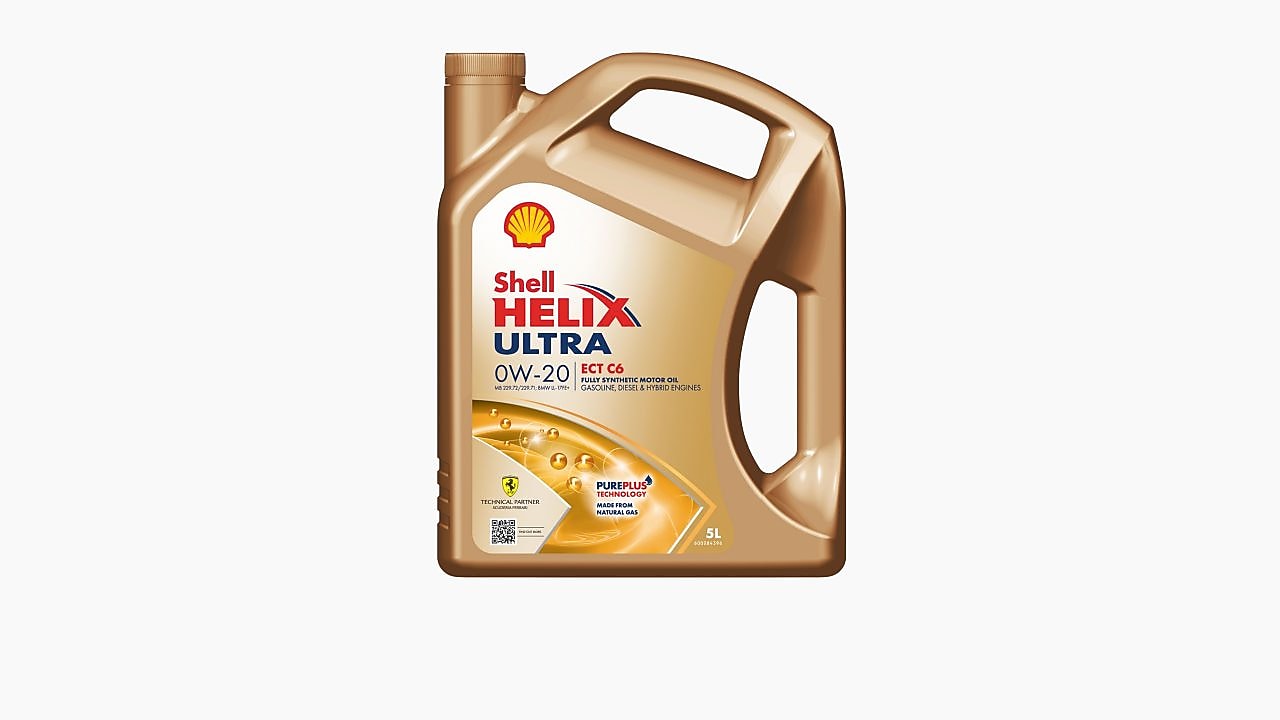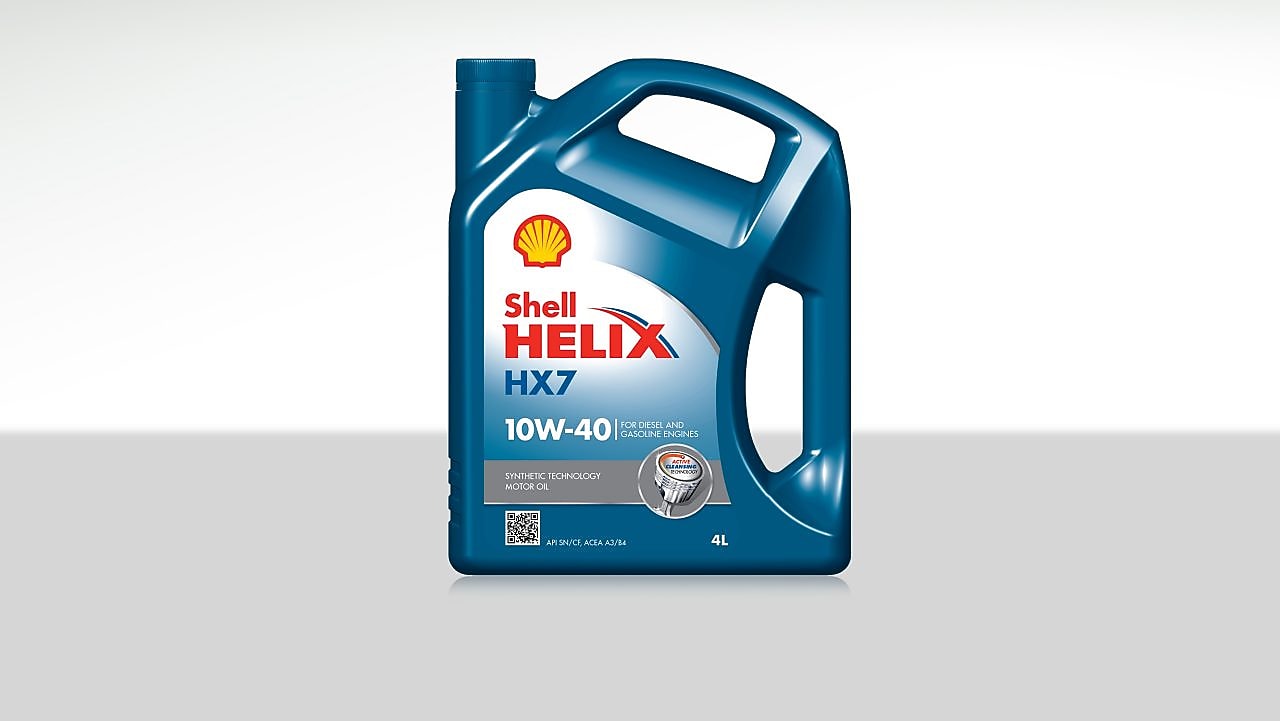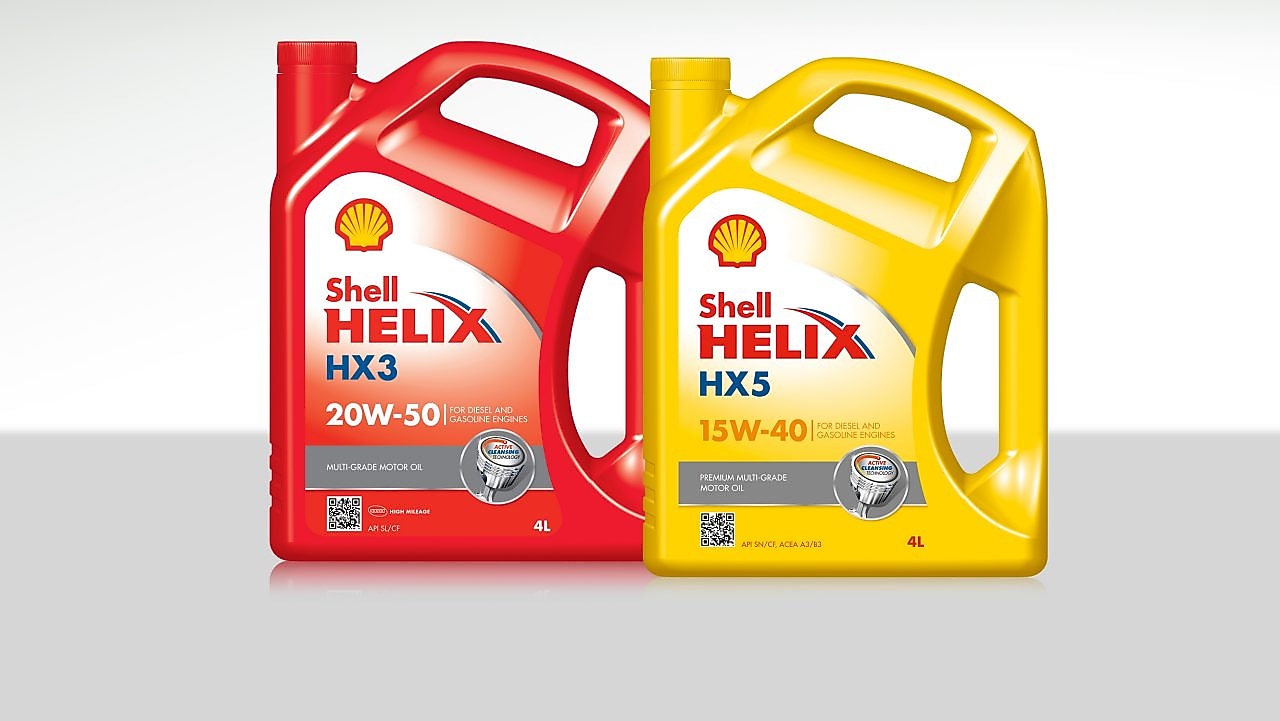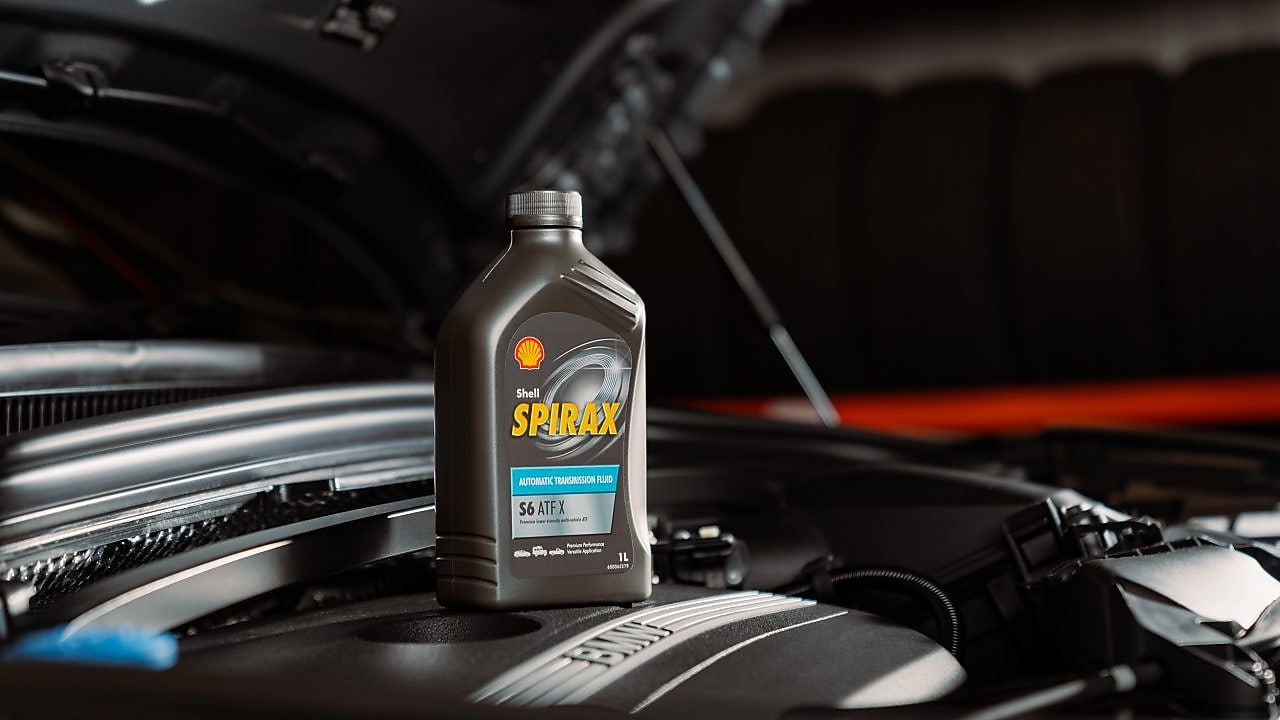
Shell Helix engine oils
Using the correct engine oil for your vehicle is of utmost importance, and Shell Lubricants understands the critical role it plays in optimizing your car's performance and longevity. Our range of engine oils is meticulously formulated with specific additives and viscosity grades tailored to meet the distinct needs of various engines. Shell Helix engines oil provide essential lubrication, minimizing friction, and preventing wear and tear on vital components. Our oils also contribute to effective engine cooling by dissipating heat and maintain a clean internal environment by trapping and suspending contaminants. Neglecting the recommended oil may compromise engine function, leading to decreased efficiency and potential damage.
We understand the challenges of choosing the right engine oil; not all engine oils are created equal. That's why we offer a solution to ease your decision-making process – Shell's user-friendly LubeMatch Tool. This tool simplifies the process, ensuring you can confidently identify the right oil for your vehicle.
The ultimate engine performance of Shell Helix Ultra car motor oil has been developed by:
Reasons to drive on with Shell Helix Ultra engine oil

Protection
Made from natural gas, Shell Helix Ultra offers superior engine protection against stress and wear. Its modern synthetic formulation is less volatile and stronger than traditional crude oil products.

Designed for extreme temperatures.
And, with PurePlus Technology, it stays stronger for longer in extreme temperatures – protecting the engine and helping it to perform better.

Power and performance
From Turbos to Super Chargers, if you love driving, Shell Helix Ultra fully synthetic auto engine oil have you covered. Our synthetics are made from natural gas and our oils are stronger at a molecular level.
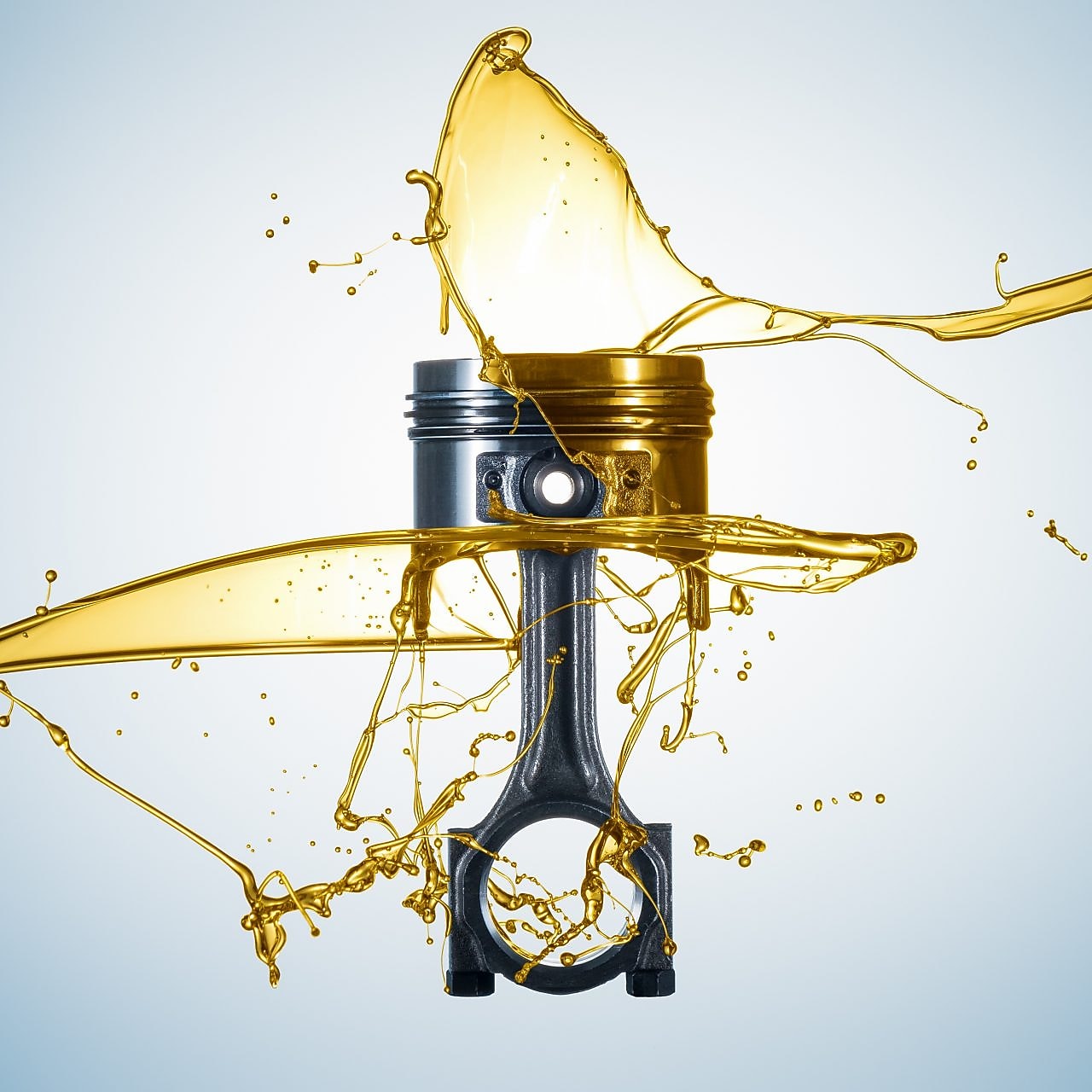
Superior piston cleanliness
Tested both on the road and on the track, no other oil cleans your engine better.* Or helps keep your engine closer to factory clean.
*Based on Sequence VG sludge test results using OW-40
Shell Helix motor oils are designed not only for passenger cars but also for light commercial vehicles (LCV). Why choose Shell Helix for van?
- Superior Protection⁸: Engineered to provide exceptional wear protection and extend engine life.
- Enhanced Performance¹: Optimized for high mileage and heavy-duty use, ensuring your vans run smoothly.
- Fuel Efficiency⁶: Formulated to improve fuel economy, saving you money on the road.
- Trusted Quality: Backed by Shell’s extensive research and innovation in engine oil technology
Shell Helix Portfolio
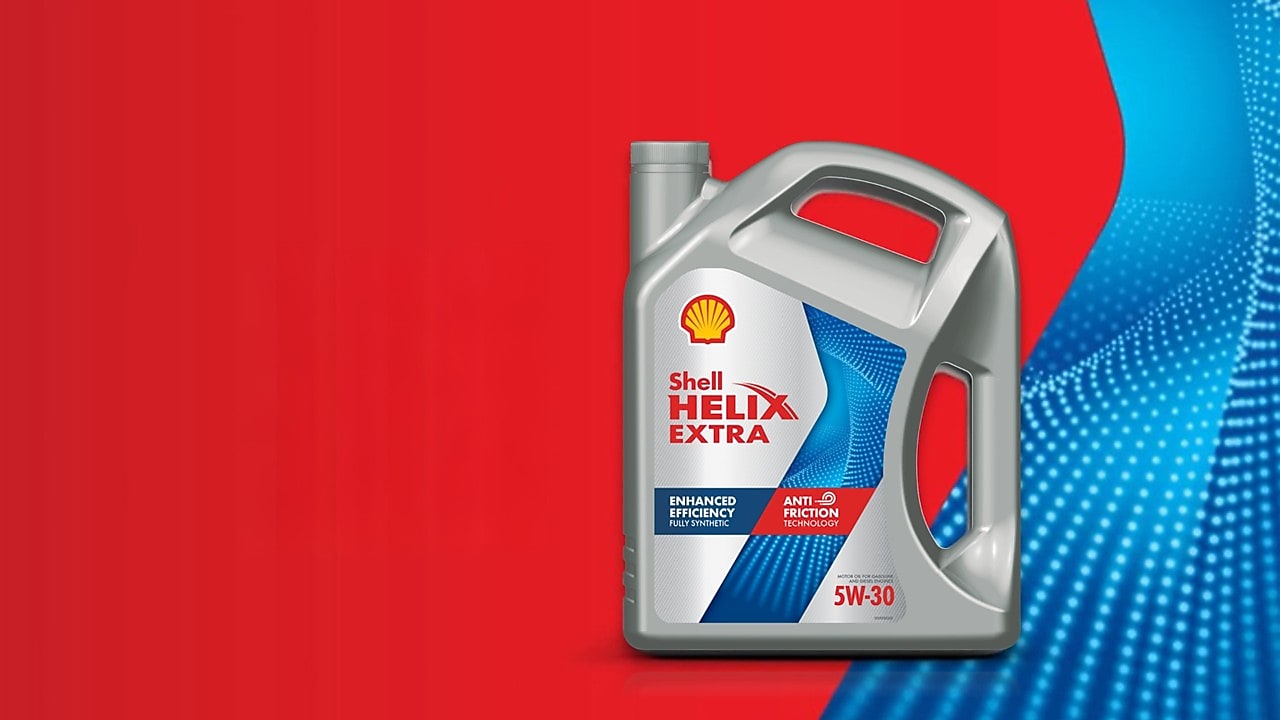
Shell Helix Extra
Shell’s latest fully synthetic motor oil range, replacing the Helix HX8 line. Powered by proven Anti‑Friction Technology, it’s designed for vehicles four years and older.
Shell Helix Ultra with PurePlus Technology is a fully synthetic engine oil providing ultimate performance for your engine.
Shell PurePlus Technology is a revolutionary process that produces a cleaner, purer form of base oil, the main component of car engine motor oils. By converting natural gas into crystal clear base oil, Shell’s patented technology process creates an oil that’s 99.5%6 pure and keeps your engine performing like new.*
Benefits of Shell Helix Ultra engine oil with PurePlus Technology
Exceptional extreme temperature performance
Shell Helix Ultra provides superior resistance to oil degradation, up to 32% better than the latest industry standard1.
It also provides up to three times faster oil flow at -40°C for easier starting and quicker engine warm up2.
Unsurpassed sludge protection
Shell Helix Ultra, with PurePlus Technology, shields high-performance engines from deposits that hinder power ad performance. Field tests showed remarkable engine cleanliness, maintaining the vehicles' original fuel economy and performance as they had the day they left the factory3.
Time and cost effective
Up to 50% less evaporation loss compared to inferior engine oils5.
Why does that matter?
Because synthetic low-evaporation formulation means you don’t need to top up your oil as often, saving you time and money.
For better fuel economy
The less friction you have between the parts in your engine, the more easily the parts can work and move – and the less fuel you will burn.
Shell Helix Ultra with PurePlus Technology has low-viscosity, low-friction formulations, which can result in up to 3% greater fuel economy6.
Disclaimers:
1 Compared with API SN specification and based on Sequence IIIG oxidation test
2 Compared with API SN specification and based on ASTM D484
3 Based on 100,000 Km fleet trial
4 Based on ASTM D5800 NOACK volatility test
5 According to M111FE test compared to reference oil
6 Based on ACEA M 111 fuel economy results compared with the industry reference oil
7 Based on paraffinic hydrocarbon content and significantly higher level of iso-paraffins compared to typical Group II and III base oils
8 Based on Sequence IVB and Sequence X engine test results comparing with API and ACEA requirements.
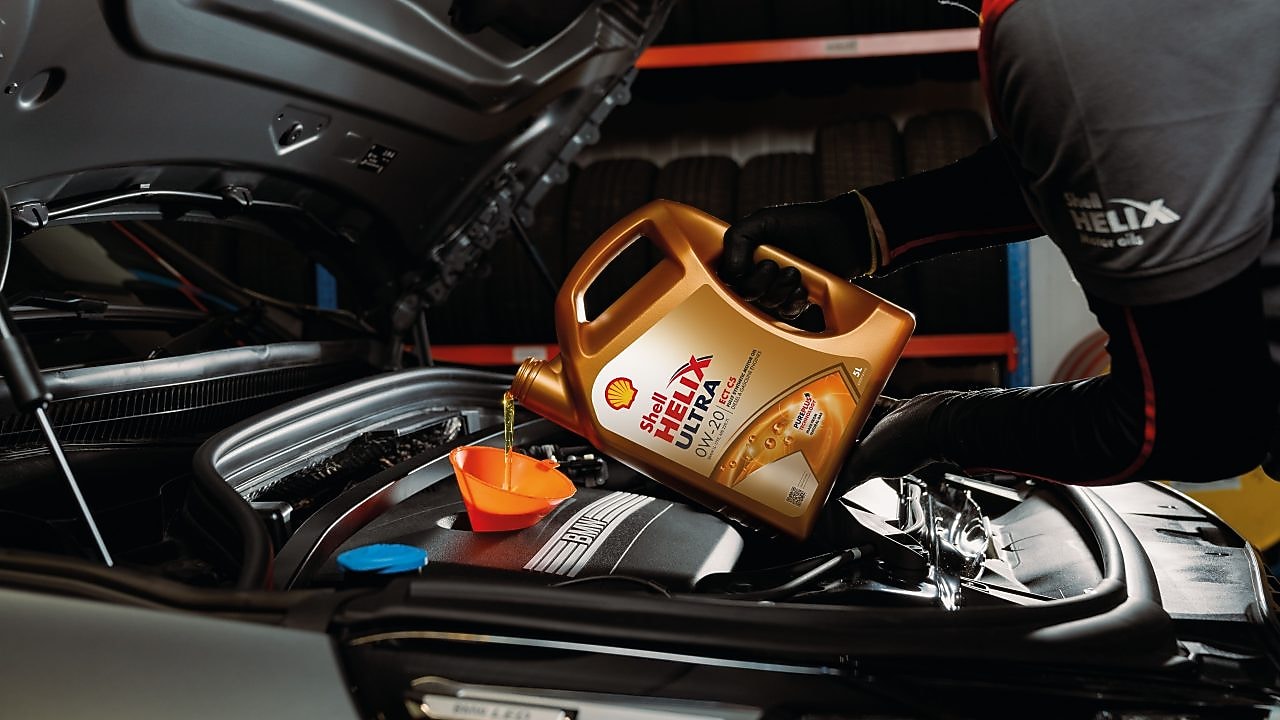
Shell Helix Motor Oils - Trusted Partners:
Shell Helix engine oils, the trusted choice of Scuderia Ferrari, BMW Motorsport, Hyundai and Maserati, underscore our commitment to superior performance and reliability. Our partnerships are the ultimate test bed for our products, challenging them to perform in some of the most extreme conditions and ensuring our customers get the very best
